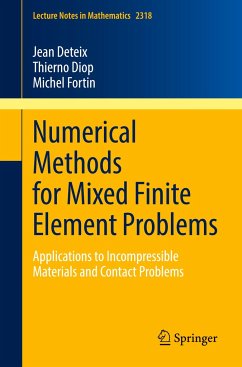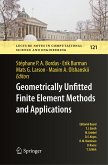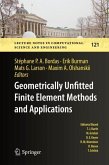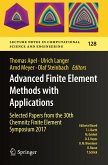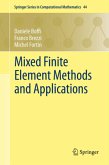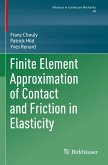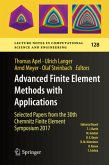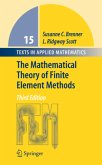This book focuses on iterative solvers and preconditioners for mixed finite element methods. It provides an overview of some of the state-of-the-art solvers for discrete systems with constraints such as those which arise from mixed formulations.
Starting by recalling the basic theory of mixed finite element methods, the book goes on to discuss the augmented Lagrangian method and gives a summary of the standard iterative methods, describing their usage for mixed methods. Here, preconditioners are built from an approximate factorisation of the mixed system.
A first set of applications is considered for incompressible elasticity problems and flow problems, including non-linear models.
An account of the mixed formulation for Dirichlet's boundary conditions is then given before turning to contact problems, where contact between incompressible bodies leads to problems with two constraints.
This book is aimed at graduate students and researchers in the field of numerical methods and scientific computing.
Starting by recalling the basic theory of mixed finite element methods, the book goes on to discuss the augmented Lagrangian method and gives a summary of the standard iterative methods, describing their usage for mixed methods. Here, preconditioners are built from an approximate factorisation of the mixed system.
A first set of applications is considered for incompressible elasticity problems and flow problems, including non-linear models.
An account of the mixed formulation for Dirichlet's boundary conditions is then given before turning to contact problems, where contact between incompressible bodies leads to problems with two constraints.
This book is aimed at graduate students and researchers in the field of numerical methods and scientific computing.
"The book provides a very brief summary to mixed finite elements and provides several literature references. The main focus of the book is on the calculation of numerical solutions for mixed finite element problems with the aid of iterative methods with preconditioners. The numerical results are interesting and can inspire researches for further developments." (Christoph Erath, zbMATH 1530.65002, 2024)

